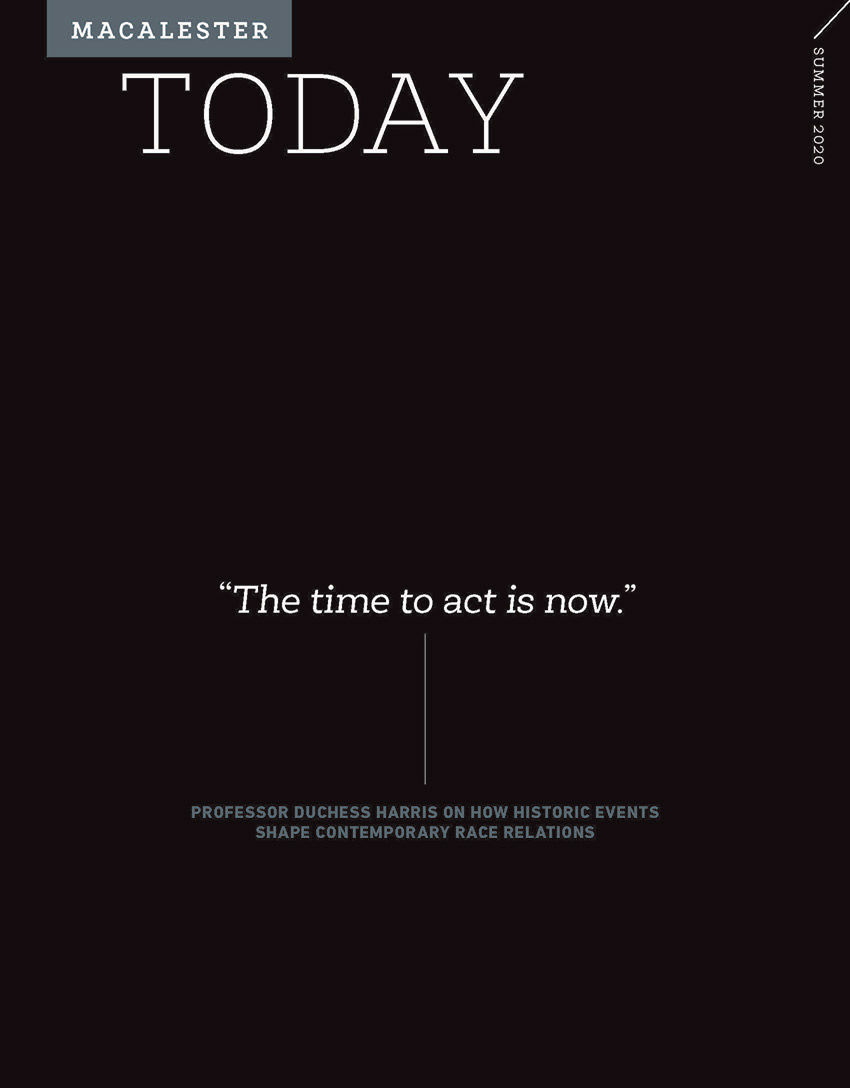
The day Donald Trump was inaugurated as the forty-fifth president of the United States, a small group of young adults performed a theater project at a high school in the Bronx. The show, How We GLOW, explores queer youth identities.
“A guidance counselor brought us in as part of a larger day of programming to respond to the inauguration,” says Emily Schorr Lesnick ’11, who co-created the piece with Jamila Humphrie ’11. “The actors were struggling with the reality of the day as well as performing on a stage in a huge auditorium with microphones that made them barely audible. It felt futile.”
Afterward, Schorr Lesnick and Humphrie led a talkback with the actors and the students in the audience that focused on local challenges. “We asked if anyone had any questions,” Humphrie says. “And a kid raised his hand and said, ‘The play was really great, but I didn’t like the gay part.’ We were taken aback and disappointed—but then it turned into a really interesting conversation.”
By the end of the day, Schorr Lesnick remembers, “students were creating tableau—frozen images using physical theatre. They were engaged and thoughtful, and worked together as a group to discuss pressing problems in their lives.”
Generating How We GLOW was a collaborative effort for Schorr Lesnick and Humphrie, who are romantic as well as creative partners. They met at Macalester in 2007 during Orientation, started dating soon after, and shared the same first-year course. “I don’t think working on a project with your partner is always the best idea,” Schorr Lesnick says with a laugh. “But maybe it works because we met in a class. We can push each other academically and creatively, because that has always been part of our relationship.”
After graduating from Mac, Schorr Lesnick returned to New York and started working at her high school alma mater, Riverdale Country School. Schorr Lesnick was also earning a master’s degree in educational theater at the New York University Steinhardt School of Culture, Education and Human Development. For her graduate coursework in 2014, she proposed an ethnodrama—in other words, ethnographic research shared as a script for a theatrical performance.
Humphrie explains what happened next: “In our household that we both read, review, and edit each other’s creative pieces.” She recognized the piece’s potential as soon as she read it. That fall, as she finished her own master’s degree at NYU’s Gallatin School of Individualized Study, Humphrie proposed for her thesis a production based on Schorr Lesnick’s idea. To make the piece a reality, they interviewed 20 self-identified LGBT youth, age 14 to 24, about their identity.
The questions they asked were intentionally open-ended, to make space for whatever came up for interviewees. One question—“What does queer mean?”—garnered a surprisingly consistent answer: “Every single person said, ‘It’s an umbrella term,’” Schorr Lesnick says. Asked about the biggest issue facing queer communities, not a single young person said marriage. And few interviewees knew anything about Stonewall, the bar where the modern queer rights movement began.
Ultimately, they incorporated 11 people’s stories into How We GLOW, named after the acronym for Riverdale’s gender sexuality alliance, “Gay, Lesbian, Or Whatever.” The 40-minute theater piece uses seven actors in a verbatim-style piece of documentary theater inspired by the work of actor Anna Deavere Smith, who interviews real people for her plays about current issues and uses their exact words in the script. The style, Humphrie says, is about the actor really sitting with the words they are speaking: “When you read someone’s words, how that person speaks, you begin to sound like them.”
Schorr Lesnick and Humphrie see the play as an access point for LGBT and straight people alike. “LGBT people get to hear their stories on stage,” Humphrie says, “and other groups in the audience who may or may not be familiar with the experience get to listen and learn.”
After attending one of the first productions in November 2015 at the Standard ToyKraft in Williamsburg in Brooklyn, one Riverdale student suggested that they perform it at school. Since then, the show has been performed more than 50 times, including at the International Dublin Gay Theatre Festival.
They recently relocated to Seattle. Schorr Lesnick works at University Prep, an independent secondary school, where students performed the show last spring—the first time she didn’t direct it. Humphrie is working on a PhD from NYU Steinhardt, focused on educational policies related to trans and gender non-conforming students. Her other ethnodrama about LGBT history, Making Gay History: Before Stonewall, premiered in New York in February. But How We GLOW hasn’t flickered out.
“I want to read through it again in 30 years to see if it feels like things have changed or if it will have stayed the same. I think the words that people use will be really different again. I think coming-out stories will be different,” Humphrie says. “These are some of my hopes, too.”
By Hillary Moses Mohaupt ’08 / Photo by Jesse Dittmar
Hillary Moses Mohaupt ’08 is a freelance writer based in the greater Philadelphia area.
August 18 2020
Back to top





